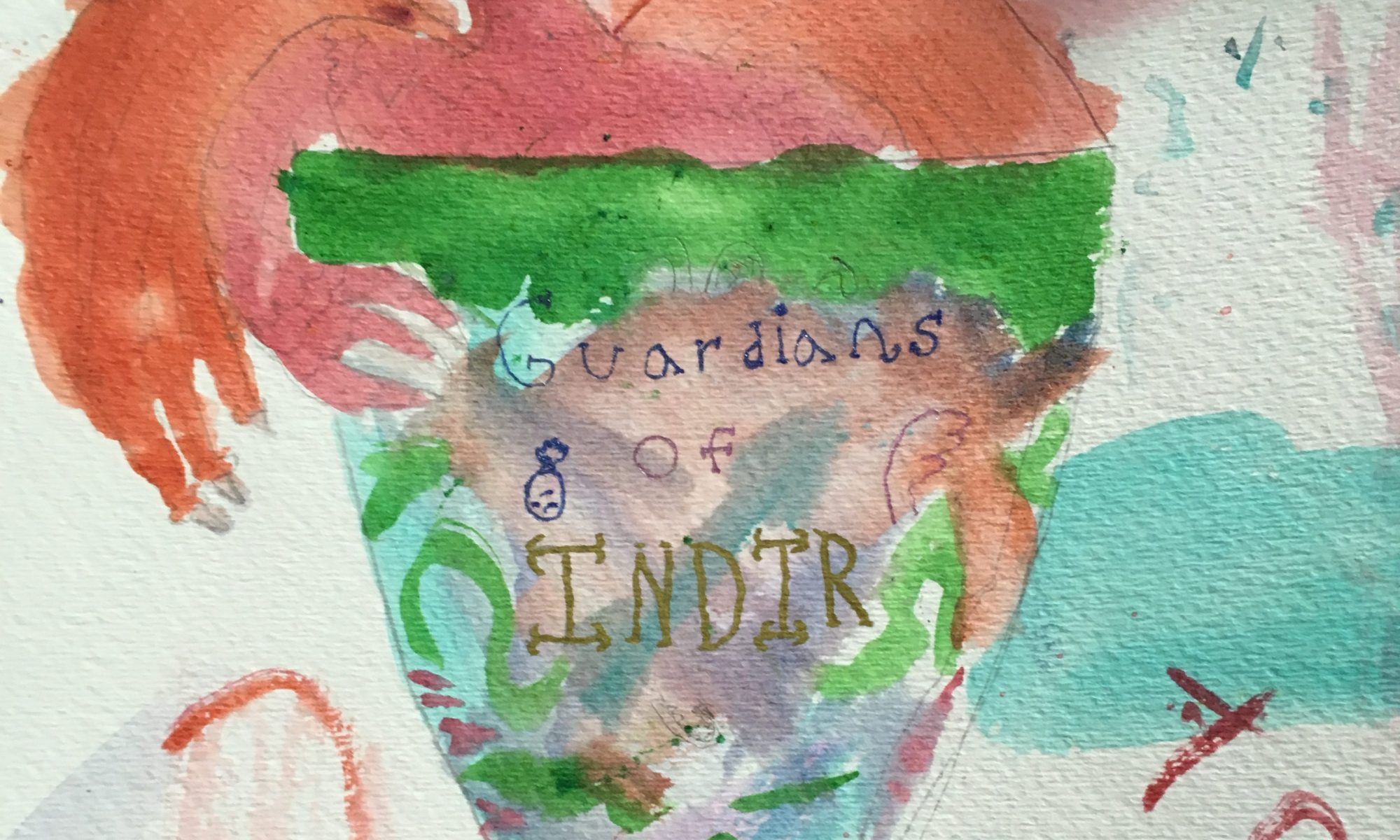Guardians of Indir was the first campaign of our podcast: a Dungeons and Dragons Fifth Edition game that we started after listening to a couple of other family-friendly RPG podcasts and deciding “Yeah, we could do that. And we want to do that.”
After you read the information on this page, you may also wish to view our wiki pages for this campaign.
Players
Harold is the DM of the Indir game. He’s been playing D&D in various editions since 1982.
Characters
Balasar – (PC, played by Korben) decorated soldier of the Indiran guard, veteran of the Dragon War
Kantu – (PC, played by Lucia) wandering birdman making a living by accepting rewards for doing good deeds in a world gone mad
Klyde – (PC, played by Kaleb) kobold grifter always looking to make a buck
Squeak – (PC, played by Blake) spy, mercenary, veteran, minstrel…this changeling is looking to belong, and he’s found acceptance with Balasar in Indir
Vhisuna – (PC, played by Aria) Klyde’s hulking friend, the hobgoblin who surprises everyone with how gracefully and quickly she moves despite her size
Dates
We started creating, playing, and recording Guardians of Indir on 11 November 2017. So far, we’ve continued playing the game through spring 2019.
Rules
Dungeons and Dragons Fifth Edition (5e) uses a basic rules set that is freely available online: D&D 5e Basic Rules
As all DMs do, the DM has implemented some new rules and modified some rules from the basic rules set. These are some of the custom rules used in the Guardians of Indir campaign.
Currency
Every nation has names for its own currency; Indir is no different.
Claws are the copper pieces that are equivalent to about $1 in spending power.
Scales are the silver coins that are each worth 10 claws ($10).
Wings are the golden coins that are each worth 10 scales ($100).
Training
Training is required for a PC to gain the abilities of a new level. Each PC has a mentor or teacher with whom (s)he meets to learn new abilities. That person gets paid for their services at a rate of 20 wings per destination level and it takes 3 days per destination level to complete that training (so it costs a character 40 wings and 6 days of downtime to gain 2nd level). If a character cannot afford this, that character cannot gain a level until they can. Discounts or loans can surely be found.
Magic names/effects
Each player is expected to personalize spells and other magic effects, by coming up with a name for the spell/effect, and a description of what it’s like to use the spell/magic effect.
Resting and healing
For a short rest, a player declares how many HD they want to use to heal their PC, and they then roll them. A player can only roll once per rest.

